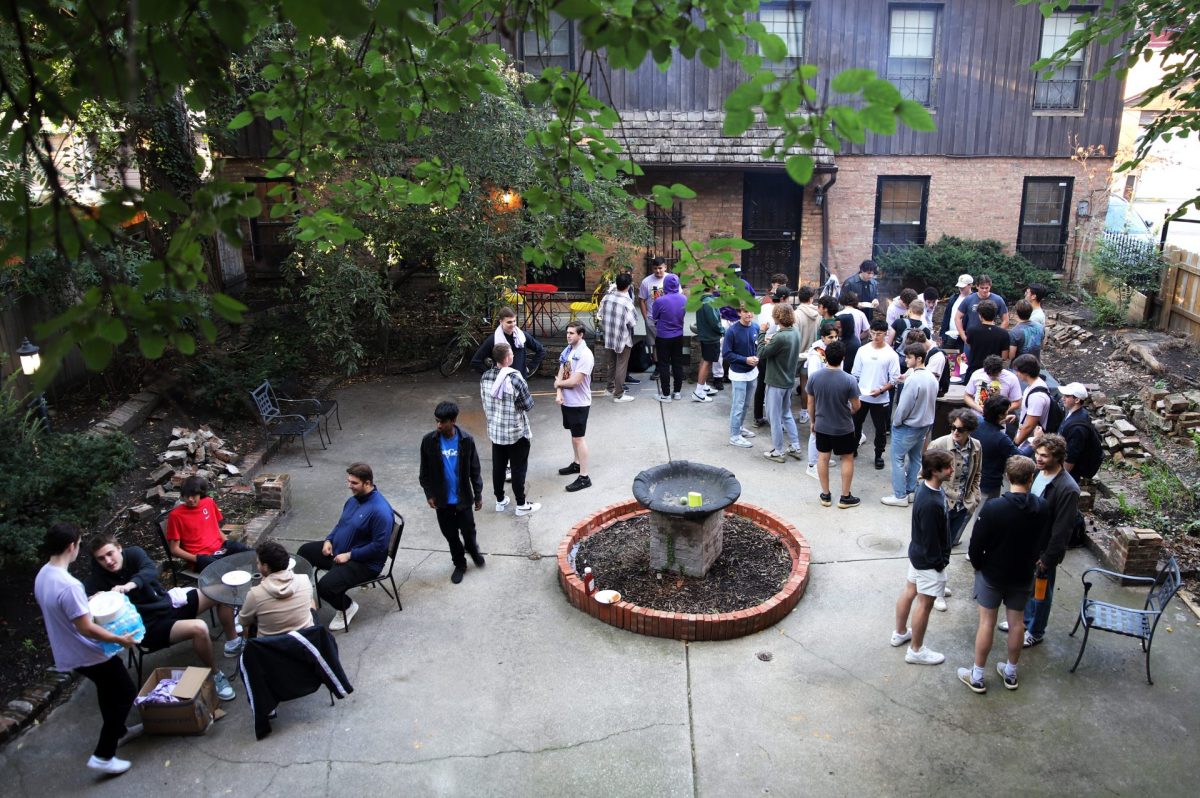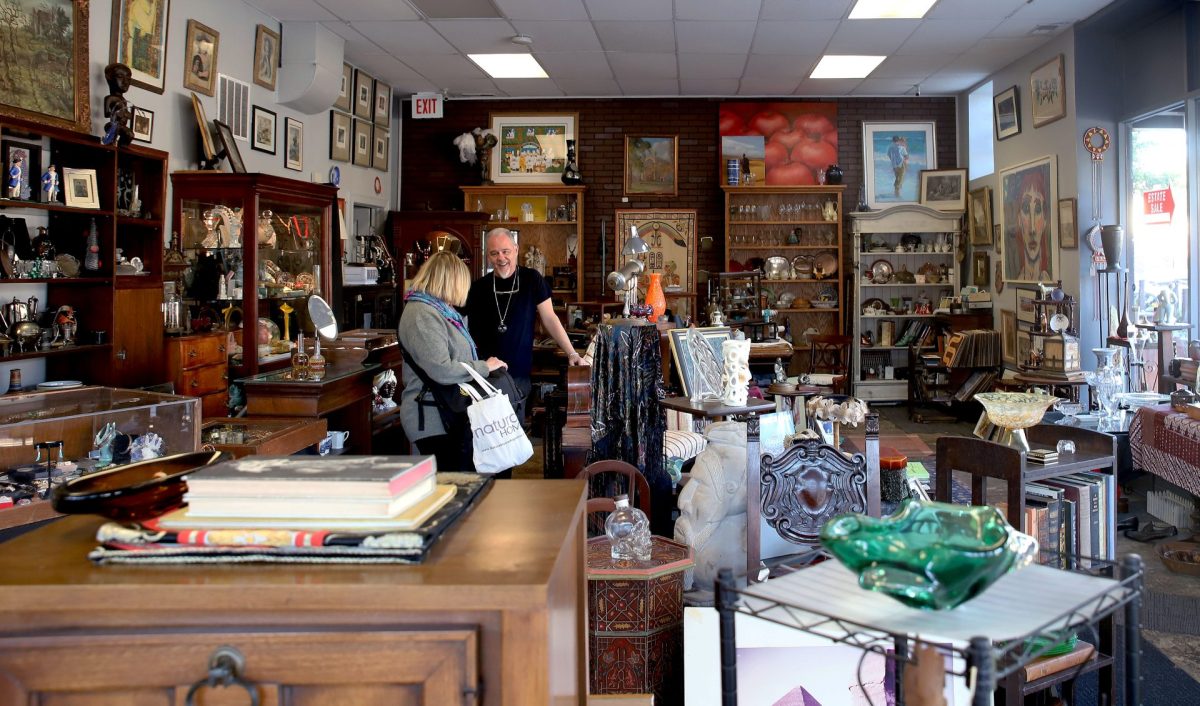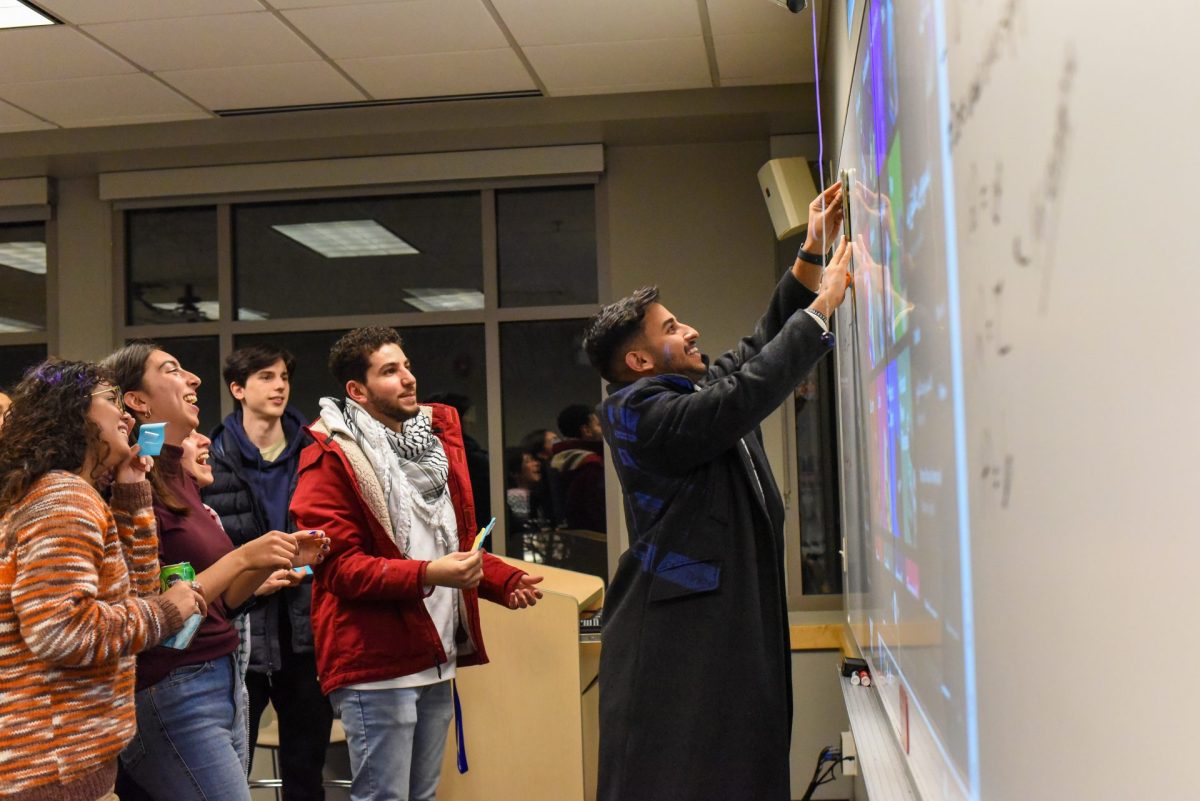DePaul sophomore Diana Torres remembers laughing with her friends as they scrolled through reels and reels of BamaRush, The University of Alabama’s infamous rush process, TikTok videos in her senior year of high school.
Videos of thousands of girls posting “Get ready with me for rush week” and choreographed dances popped up on her feed as the internet quickly became obsessed with the scandals and hazing in American Greek life.
Now as Parent and Alumni director of Alpha Xi Delta, her experience in a sorority at DePaul could not be more unlike Alabama’s as organizational events are based in the city environment.
“Being a school in the north, being a school in a city, it’s a completely different experience,” Torres said.
Fraternity and sorority life (FSL) members make up 10% of the student population on campus. At DePaul, there are 27 chapters consisting of the Interfraternity Council (IFC), Multicultural Greek Council (MGC), National Pan-Hellenic Council (NPHC), and Panhellenic Council (PHC).
DePaul began changing the terminology around these organizations, shifting away from “Greek life,” to “fraternity and sorority life.”
Smaller numbers and no on-campus FSL housing are some of the key differences to more prominent FSL schools here at DePaul.
The recruitment and rush process:
At Sigma Alpha Epsilon (SAE) the “brothers” recite a creed at the beginning of every meeting. It’s called the true gentleman.
“I think … the way you are going to be a good standing member in this fraternity is by being respectful to those around you and taking accountability,” said Gage Holle, President of SAE.
Not only is recruitment selective to find potential members that would fit in well with the brothers, but it is also a way to prevent potential liabilities.
“The reason that we are so selective now is because whoever you let in, once they’re in that fraternity system you can’t exclude them,” said Spencer Milligan, senior and Eminent Warden of SAE.
“If we throw an event or a party the last thing we want is people to feel uncomfortable,” Milligan said.
At Alpha Xi Delta this year, the sorority only did three days of recruitment including rounds of conversations with members leading up to the anticipated bid day.
For sophomore Maggie Gaughan, vice president of Finance and Operations, rushing was not on her mind when she started at DePaul. Gaughan said she didn’t sign up until the last day before the deadline.
“So many of these girls go into recruitment not even planning on initially rushing,” Gaughan said. “I was surprised at how kind the girls were. I was thinking they would be a lot more intimidating.”
Multicultural Greek Council:
For many, fraternity and sorority life provides both a home and a second family. In the third largest city in the U.S., finding a sense of community can be imperative for many college students.
Among the eight culturally-based fraternities and sororities, Alpha Psi Lambda, founded in 1996, is the first and largest Latinx fraternity on campus, creating a home for everyone of all backgrounds. Their motto: “A familia away from home.”
“There are growing numbers of people of color attending universities,” said President Luz Cano.
“Unfortunately, while the number is growing there aren’t many spaces offered.”
Because Alpha Psi Lambda is part of the Multicultural Greek Council (MGC), the organization hosts many cultural social events aiming to engage members from all backgrounds.
Cano believes DePaul could do more to advocate for the MGC as she saw little marketing or promotion when first coming to campus.
“When I first started at DePaul I was only familiar with Panhellenic and IFC which is predominately white,” Cano said. “In a way, I feel like those spaces were not for me or I didn’t relate to them. While there are resources on campus, I feel like they don’t have the impact that someone that has the same identity as you does.”
Members are involved in different non-profits throughout the Chicago Latinx community with goals such as helping refugee women get immigration assistance and childcare education.
Philanthropy:
Philanthropy work is a major part of FSL on campus throughout all the Greek letters.
At Alpha Xi Delta, the Kindly Heart Initiative assists housing insecure and foster children across the country.
“You get to do community service with your friends,” Gaughan said. “Maybe you are trying to have fun with your friends, but in that process, you are also doing good.”
Different organizations host week-long philanthropy events on campus, such as SAE’s Paddy Murphy week, which raises money to donate to Camp Kesem, a camp for children whose parents are diagnosed with cancer.
“We raised about 5,000 dollars last year and sent 10-11 kids to camp,” said Cooper Davislinky, Eminent External Deputy Archo. “It was one of those things you look back on and [think] we were really doing something here.”
Not only is community service a way for organizations to make a difference, but it’s a way to shift stigmas around fraternities on campus.
“You can’t fight against not doing a bad thing. It’s really either you’re doing it or you meet the standard by not doing so,” Holle said. “We try to take it a step further to do as much as we can around the Chicago community to be an organization that people can rely on when they need help with any charitable endeavor.”
At the end of the rounds of rushing new sorority members run “home” to the beloved quad to celebrate their initiation to their new sisters, a college experience familiar to many nationwide.








